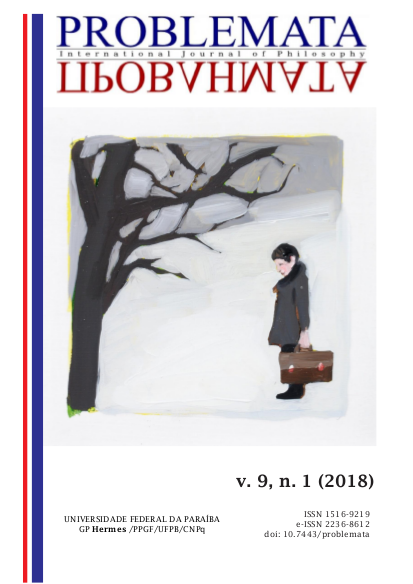VERSUCH ÜBER MIMESIS UND DEN SLOGAN WHY DO MARKETING PROFESSIONALS USE MILITARY SLANG?
DOI:
https://doi.org/10.7443/problemata.v9i1.38722Abstract
Battle cries are a traditional manifestation of language in times of war. In Scottish-Gaelic, they were called “sluagh gairm”, from which the word slogan emerged. In a war cry, special wording motivates fellow combatants, while at the same time scaring the enemy. Today's advertising slogans, comparatively minor, are expected to tempt consumers into spending some money. Quite naturally, advertising experts use the term "campaign", which literally labels a military expedition. Why do we make it sound deadly serious when it is not really a matter of life and death? However, defense of man-made regulations always seemed to be worth bloodshed in history: ritual and public orders used by humans to keep the world's unpredictability at bay were of utmost significance. Those regulations in former times, devoted to a higher authority, a spirit who was expected to grant deliverance from the evils of uncertainty. Today, often stock prices or consumer attitudes are meant by these threats. Powerful brand identities could be seen as protective deities against harmful influences and thus are defended fiercely.
Downloads
References
– Adam, F. (1970). The Clans, Septs & Regiments Of The Scottish Highlands. London: Johnston and Bacon.
– Horkheimer, M.; Adorno Th. W. (2001). Dialektik der Aufklärung. Philosophische Fragmente. Frankfurt/M.: S. Fischer Verlag.
– Orwell, G. (1986). Homage to Catalonia. London: Penguin Books.
– Schultz, H. (2011). Onward. Wie Starbucks erfolgreich ums Überleben kämpfte, ohne seine Seele zu verlieren. Weinheim: Wiley-VCH.
– Türcke, C. (2009). Philosophie des Traums. München: C. H. Beck.
– Wala, H. H. (2012). Meine Marke. Was Unternehmen authentisch, unverwechselbar und langfristig erfolgreich macht. München: Redline Verlag.
Downloads
Published
Issue
Section
License
Authors who publish with this journal agree to the following terms:
- Authors retain copyright and grant the journal right of first publication with the work simultaneously licensed under a Creative Commons Attribution License that allows others to share the work with an acknowledgement of the work's authorship and initial publication in this journal.
- Authors are able to enter into separate, additional contractual arrangements for the non-exclusive distribution of the journal's published version of the work (e.g., post it to an institutional repository or publish it in a book), with an acknowledgement of its initial publication in this journal.
-
- Authors are permitted and encouraged to post their work online (e.g., in institutional repositories or on their website) prior to and during the submission process, as it can lead to productive exchanges, as well as earlier and greater citation of published work (See The Effect of Open Access).





